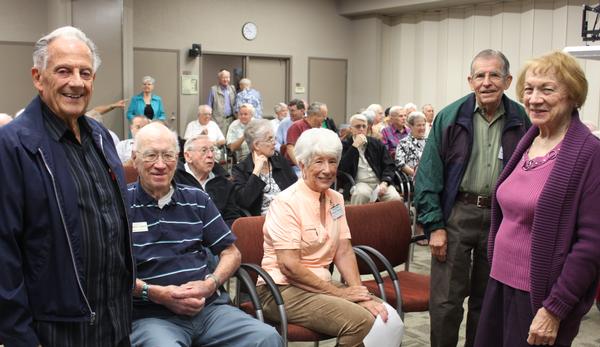(At work early finishing up a “due first thing in the morning” project = quick blogging break now.)
So over the weekend I wrote about the stages of life (in a middle-class, developed-world context) and said we should start using the term “late adulthood” to refer to adults in their 60s and 70s, rather than words that presume life events like retirement, or euphemisms like “mature adults” or “senior citizens.”
Partly I’ve been reading a book called “Unretirement,” the very name of which highlights the need for better terminology, though the above-mentioned “due first thing in the morning” project prevented me from finishing it and subsequently writing about it; that’ll come later this week. But in the meantime, I wanted to flesh these thoughts out a bit more.
Apparently, “Late Adulthood” is already a term — the top hit in a google search was CliffsNotes.com, which defines it as age 65 to death (and the context seems to always be developmental psychology). Wrong, wrong, wrong. Well, OK, I’m not an expert, but: I think it would be very helpful to have some neutral terminology which distinguishes between, as I’m calling them, the Late Adult years (60s and 70s) and Old Age (80 and up), as these really are two different stages of life.
Early Adulthood is a time of transition, moving away from youth and to a full participation in adult life. Some generations ago this wouldn’t have been an appropriate statement, since it was pretty much expected that by the time you hit age 18 or so, you are ready for adult life — work, marriage, family, etc. But for the typical middle-class adult in the developed world, this has changed dramatically, as schooling is extended, as are marriage and childbearing (special note to Athena: these are typical experiences; your mileage may vary), and even for those who start work just after trade school or college, there’s more of a settling-in period with on-the-job training and experience-gaining.
And Late Adulthood is the same: it’s a transition out of paid work, out of parenting responsibilities, and into increased levels of physical and mental incapacity. Because this is a transition period, it’s important to think of this as a separate life stage than Old Age, which is characterized by the end stage of leaving paid work or work-like activities (e.g., volunteering) entirely, and experiencing significant physical/mental decline (though not necessarily walkers and dementia).
These life stages happen at different points for different individuals but, for purposes of discussing public policy, the 20 year intervals are useful.
Consider, too, the Cliff Notes statement, and other such definitions, that this stage begins at age 65.
There would be nothing magical about age 65 if we moved to a vouchercare-type program in which all adults receive the same benefits, regardless of age. We are also aware, or we should be, that the Social Security disability program urgently needs reform, and (more on this later) I could envision part of this reform encompassing a two-stage Social Security program: a combo of a disability/enhanced unemployment/bridge benefit for ages 55 – 70 and a flat universal benefit (perhaps means-tested/phased-out) for those beyond this age. (The other thing that Social Security disability sorely needs are return-to-work supports and partial-disability elements – but that’s for another time.) In that scenario, what is so special about age 65?
Break over! More follow-ups to come.












